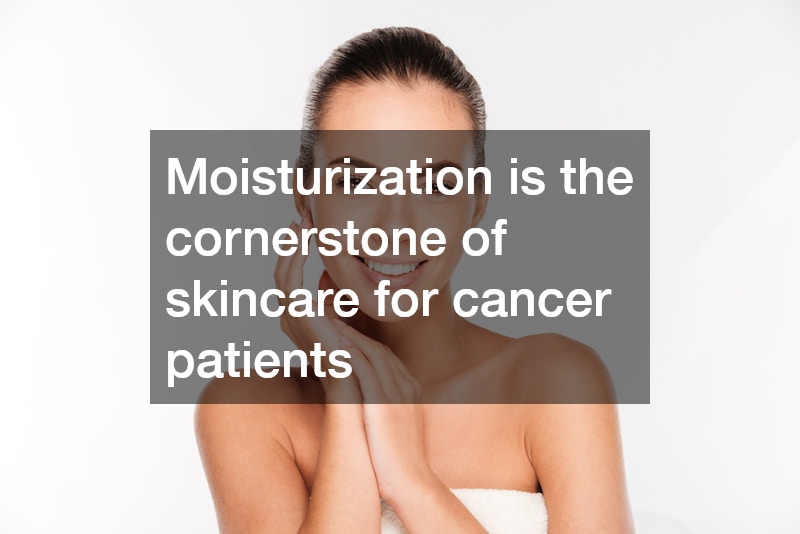Cancer treatments are life-saving, but they often come with a slew of side effects, including those affecting the skin. Skincare for cancer patients requires special attention due to the heightened sensitivity and vulnerability caused by treatments like chemotherapy and radiation. Managing these challenges with gentle yet effective skincare solutions is essential to maintain the skin’s health and the patient’s comfort.
It is not just about appearance, but also about alleviating discomfort and preventing complications that can arise from skin issues.
How Does Cancer Treatment Affect the Skin?
One of the most common effects of cancer treatments on the skin is dryness, which can lead to discomfort and increased sensitivity. Chemotherapy and radiation often reduce the number of oil and sweat glands in the skin, damping its ability to keep itself hydrated. This moisture loss can manifest as rough, flaky patches that may become itchy and painful if not cared for properly.
Sensitivity is another major issue that cancer patients face when undergoing treatment. The skin may become more reactive due to the thinning of the epidermis and decreased immune response. This increased sensitivity can result in heightened reactions to products and environmental factors that previously posed no threat. Even small irritations can lead to significant discomfort and possible skin infections.
Additionally, cancer treatments can leave the skin more vulnerable to infections and other conditions. Compromised immunity and the skin’s inability to heal as efficiently mean that infections and inflammations can become serious concerns. Therefore, it’s crucial to focus on protective measures and minimize exposure to potential skin irritants and pathogens during this time.
What Are the Essential Skincare Steps for Cancer Patients?
A basic skincare routine tailored for cancer patients starts with a gentle cleanser. Selecting a non-foaming, fragrance-free cleanser can help maintain the skin’s protective barrier without stripping away its natural oils. Lukewarm water should be used to cleanse the skin, as hot water can exacerbate dryness and irritation. This step helps remove impurities without over-drying the skin, which is critical in managing sensitivity.
Moisturization is the cornerstone of skincare for cancer patients. Utilizing a rich, emollient moisturizer can help lock in the skin’s moisture and restore its barrier function. Ingredients like ceramides, hyaluronic acid, and glycerin are beneficial for maintaining hydration and supporting skin health. By applying these products regularly, especially after cleansing, patients can soothe dryness and improve overall skin comfort.
Sun protection cannot be overlooked in this routine. Cancer treatments can increase the skin’s susceptibility to sun damage, making the application of a broad-spectrum sunscreen crucial—even on cloudy days. Sunscreen with an SPF of at least 30 should be applied, and physical blockers like zinc oxide or titanium dioxide are recommended for their gentle yet effective protection without irritation. Limiting sun exposure and using protective clothing complements the use of sunscreen.
Which Ingredients Should Cancer Patients Avoid in Skincare Products?
Cancer patients should exercise caution when selecting skincare products, avoiding ingredients that may exacerbate sensitivity or cause adverse reactions. Fragrances are a common culprit that can trigger irritation or allergic reactions in sensitive skin. Opting for fragrance-free products can significantly reduce the likelihood of these issues and contribute to a more comfortable skincare routine.
Alcohols, particularly denatured alcohols and ethanol, should also be avoided due to their drying and irritating properties. These ingredients can strip the skin of its natural oils, leading to further dryness and compromised skin integrity. Checking ingredient labels for these forms of alcohol can prevent inadvertent damage during an already delicate time for the skin.
Certain preservatives such as parabens and formaldehyde releasers can also pose risks due to their potential to cause irritation. While preservatives are necessary for product stability, opting for products with alternative, gentler preserving agents can help minimize irritation while maintaining product efficacy. Consulting with a dermatologist to identify safe, non-irritating options is advisable for personalized skincare.
Are There Specific Brands or Products Recommended for Cancer Patients?
When it comes to brands and products, several dermatologist-recommended options cater specifically to the needs of cancer patients’ skin. Brands such as La Roche-Posay, Avène, and CeraVe offer lines that focus on gentle skincare with formulations free of common irritants. Their products often emphasize soothing and hydrating ingredients suitable for compromised skin conditions.
Another recommended approach is exploring product lines that specifically market themselves for cancer patients. For instance, brands like Alra Care Products provide items explicitly developed in collaboration with oncologists and dermatologists, ensuring that the formulations are safe and supportive of cancer patient skincare needs. This can provide patients with peace of mind when customizing their skincare routine.
In addition to selecting appropriate brands, it is beneficial to seek the guidance of a dermatologist before beginning any new products. Dermatologists can recommend specific items tailored to the patient’s individual needs, taking into account the type of cancer treatment and any unique skin challenges the patient faces. This personalized approach ensures the safety and effectiveness of the skincare regimen.
Skincare for cancer patients is not merely a cosmetic consideration but an essential component of supportive care. Tailoring skincare routines to address the specific challenges and sensitivities brought on by cancer treatments can help mitigate discomfort and promote better skin health. Through proper cleansing, moisturizing, and protecting the skin from the sun, patients can better manage the dermatological side effects associated with their treatment.
It is imperative for patients to remain vigilant about ingredient selection, avoiding common irritants such as fragrances and alcohols to reduce the risk of adverse reactions. By opting for dermatologist-recommended brands and products, patients can feel more confident in the safety and suitability of their skincare regimen during such a vulnerable time.
Ultimately, collaboration with healthcare providers is crucial. Patients are encouraged to consult with their dermatologists to receive personalized advice and recommendations, ensuring their skincare routine aligns with their unique needs and circumstances as they navigate their journey. By prioritizing skincare, cancer patients can better protect their skin, resulting in enhanced comfort and quality of life.


